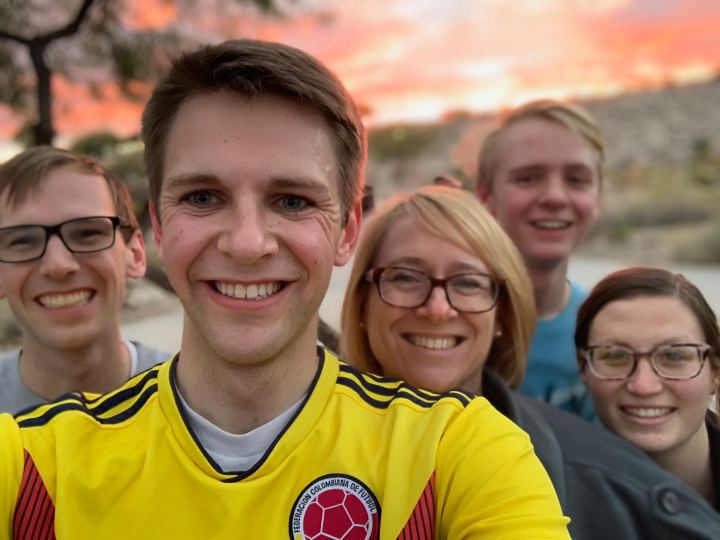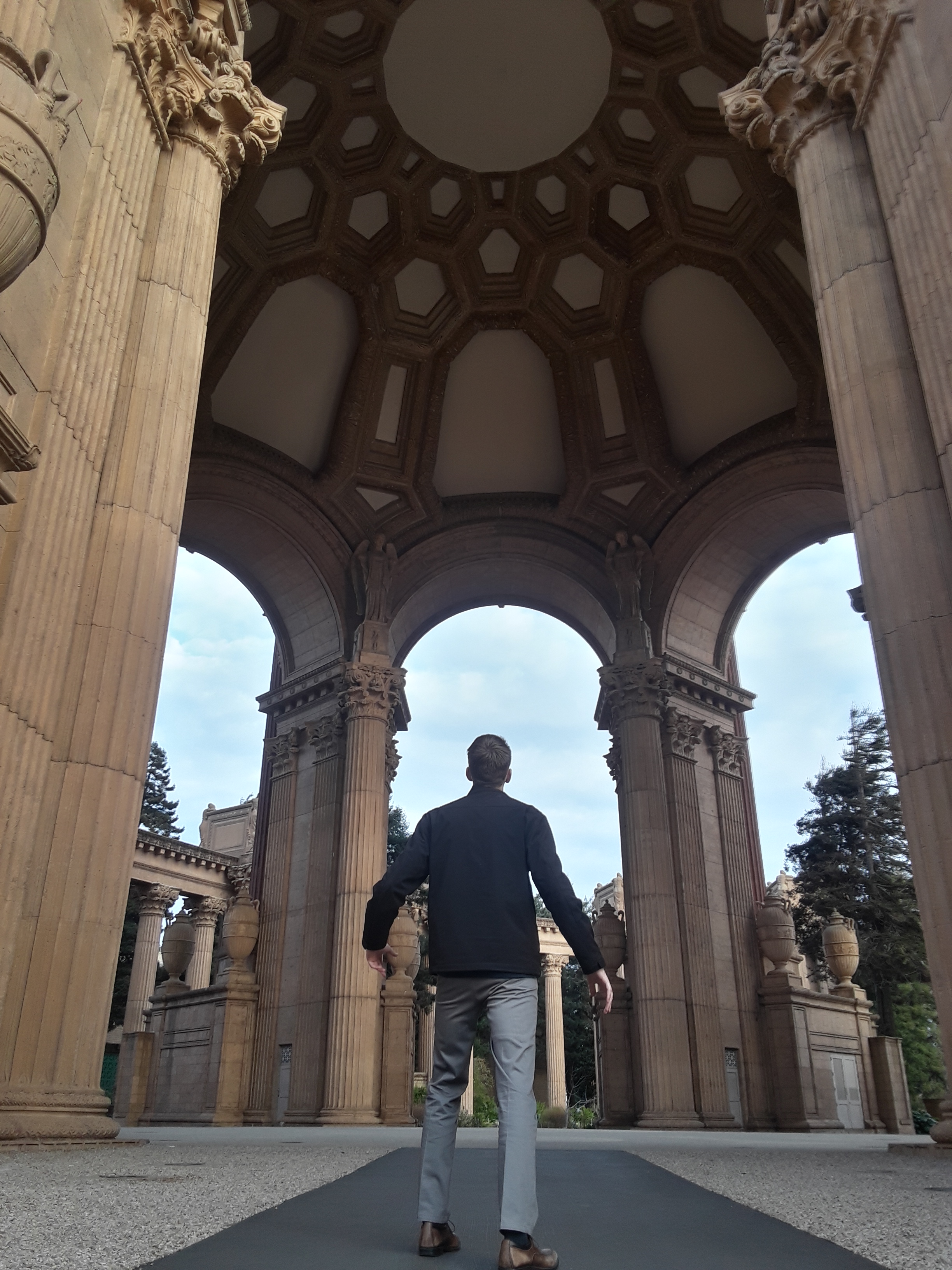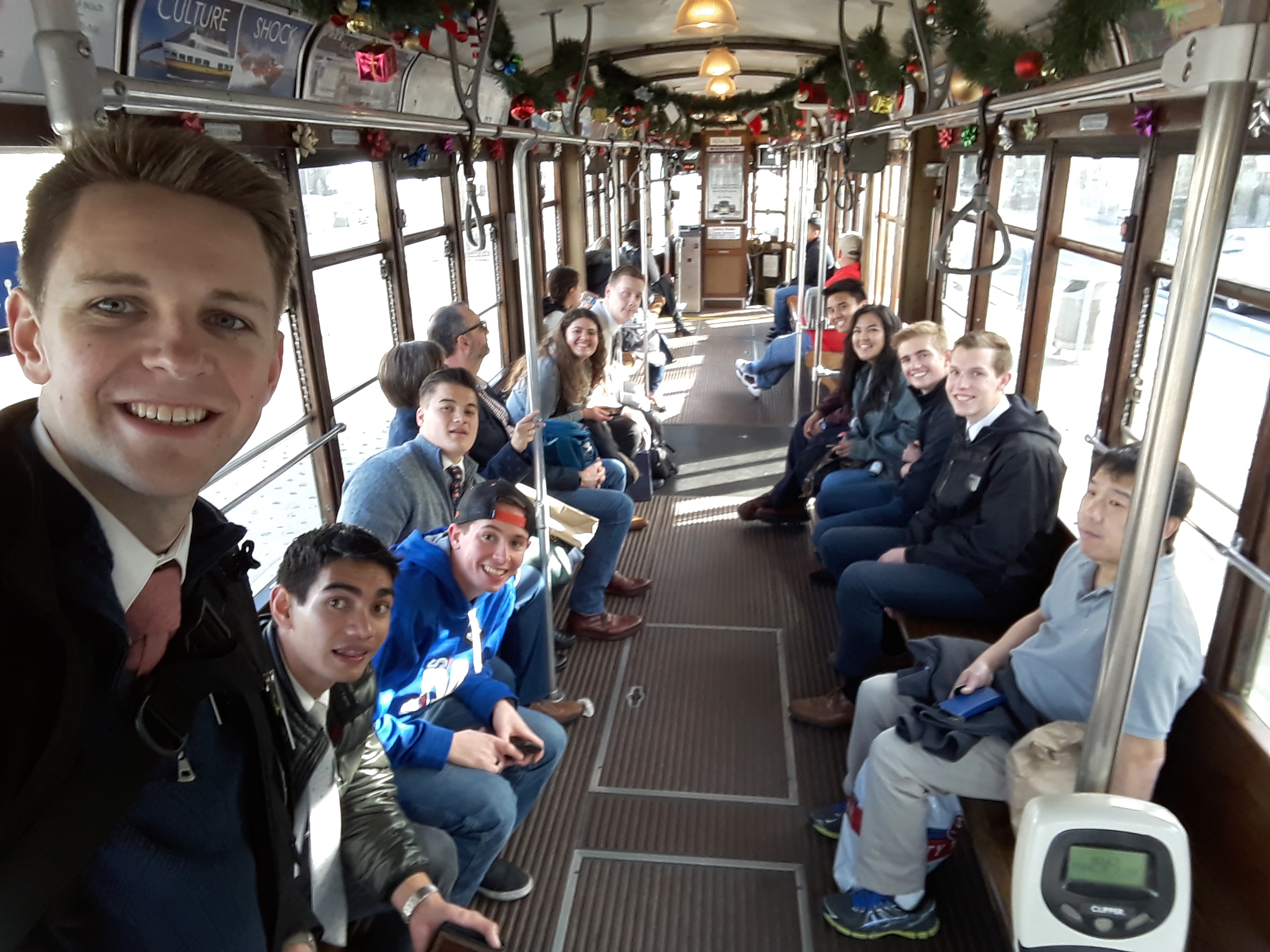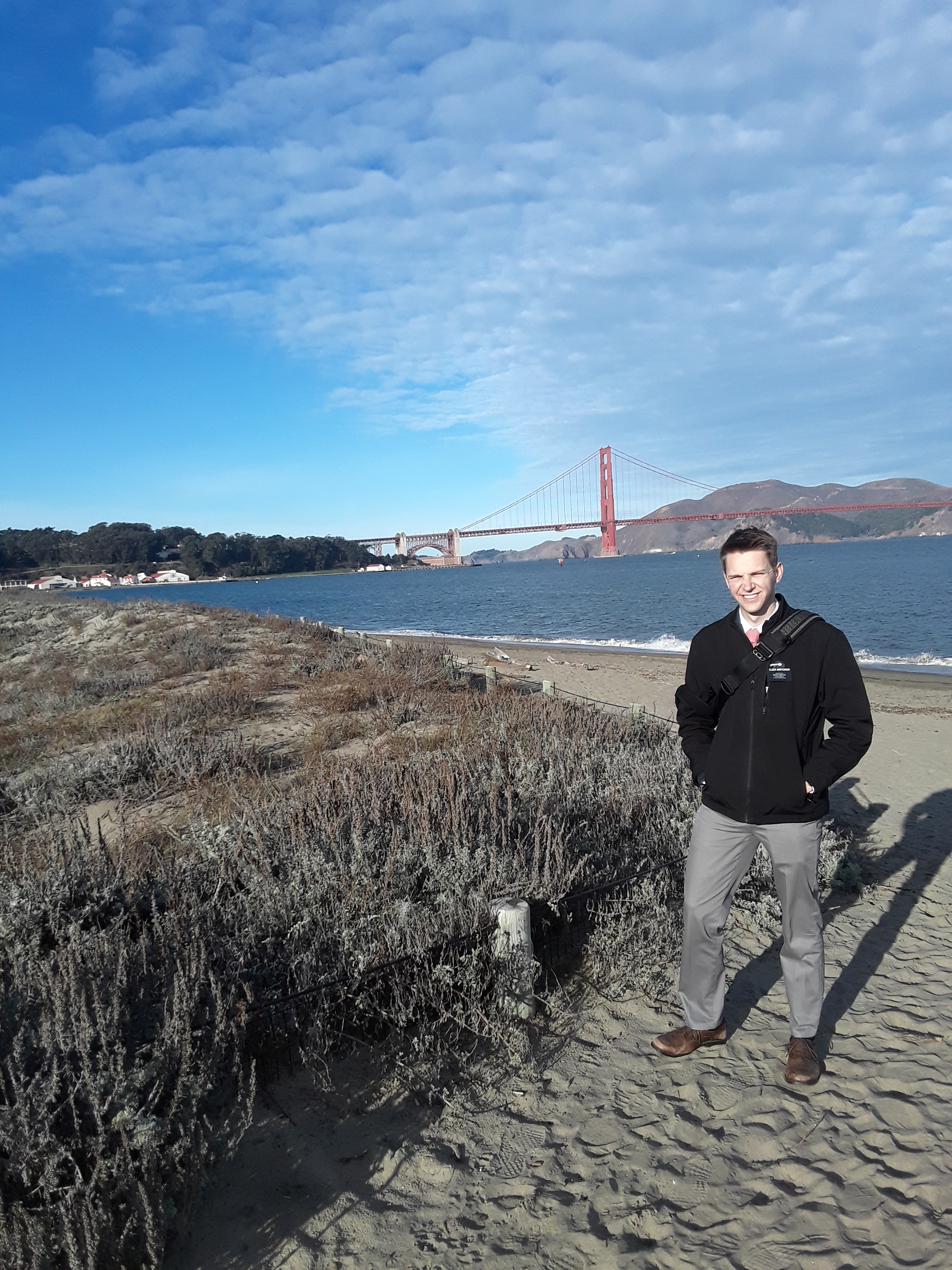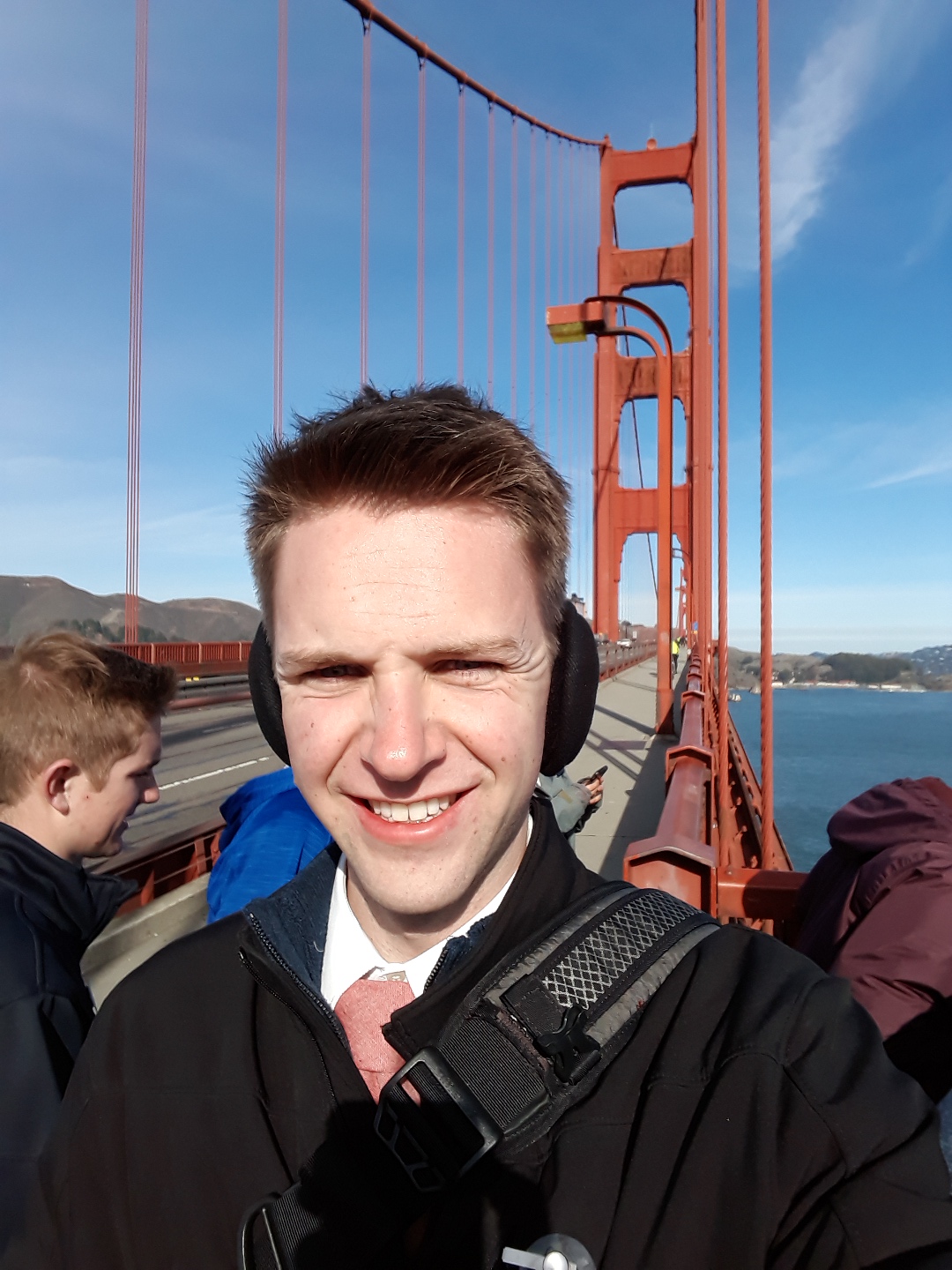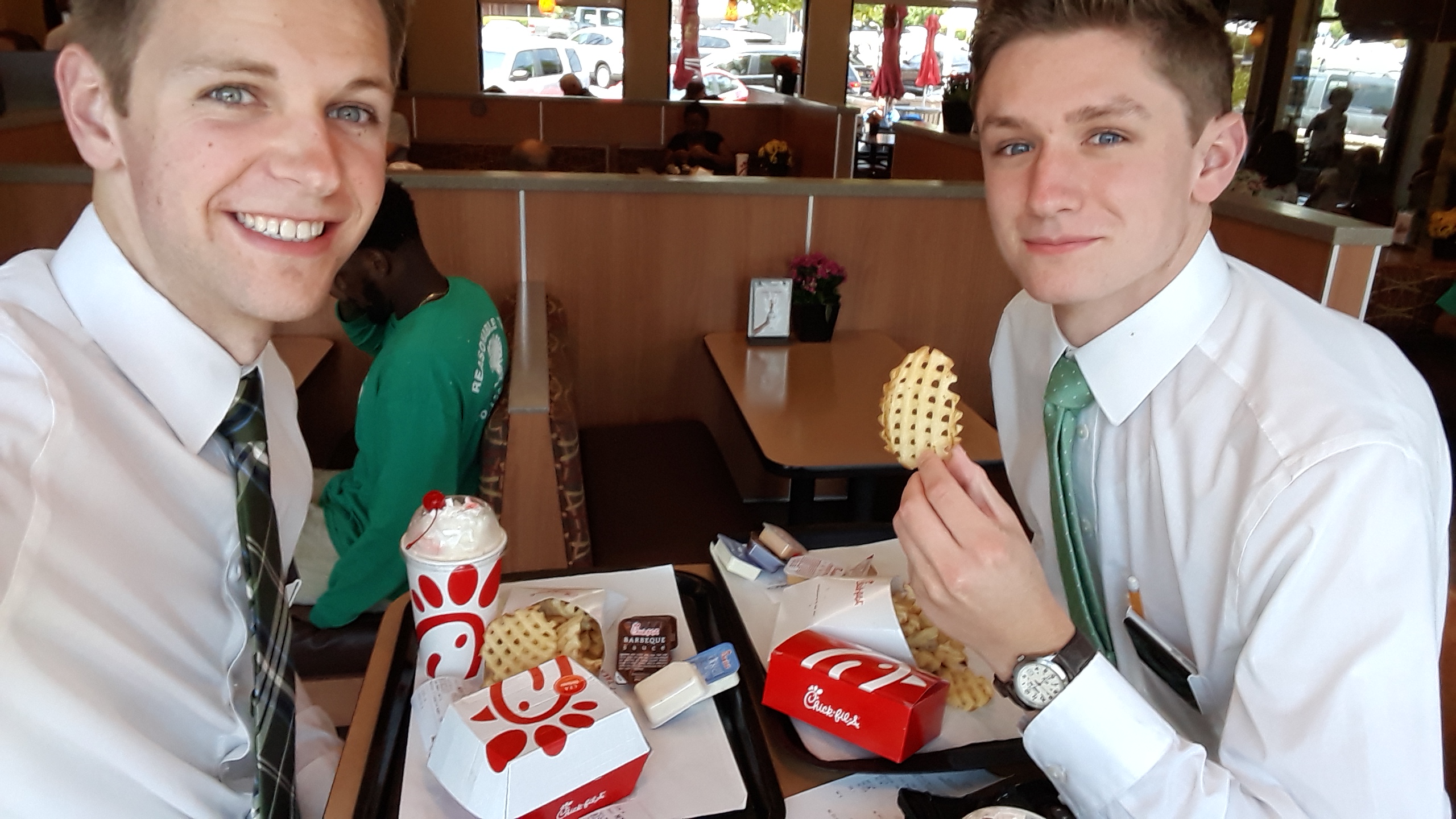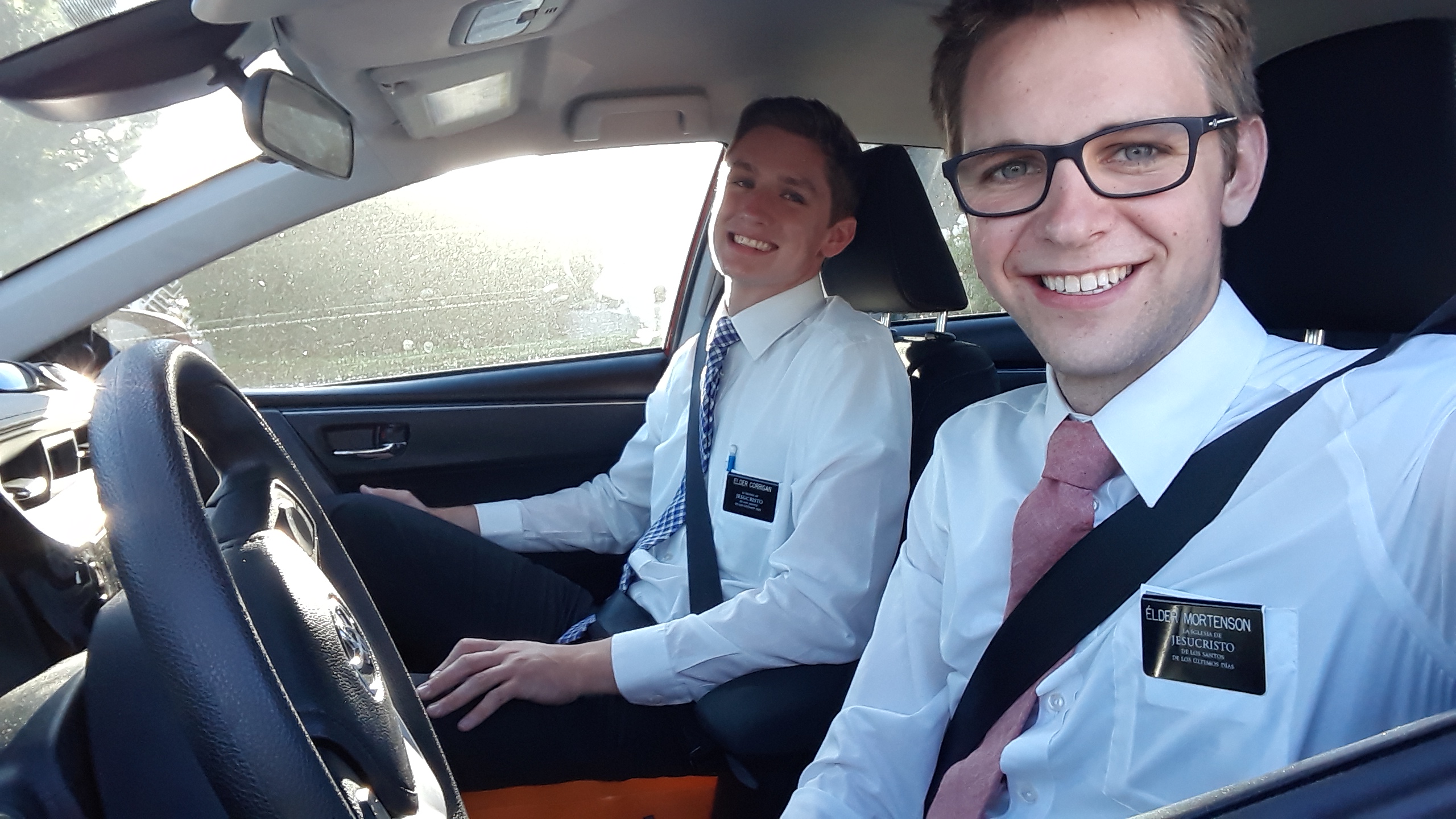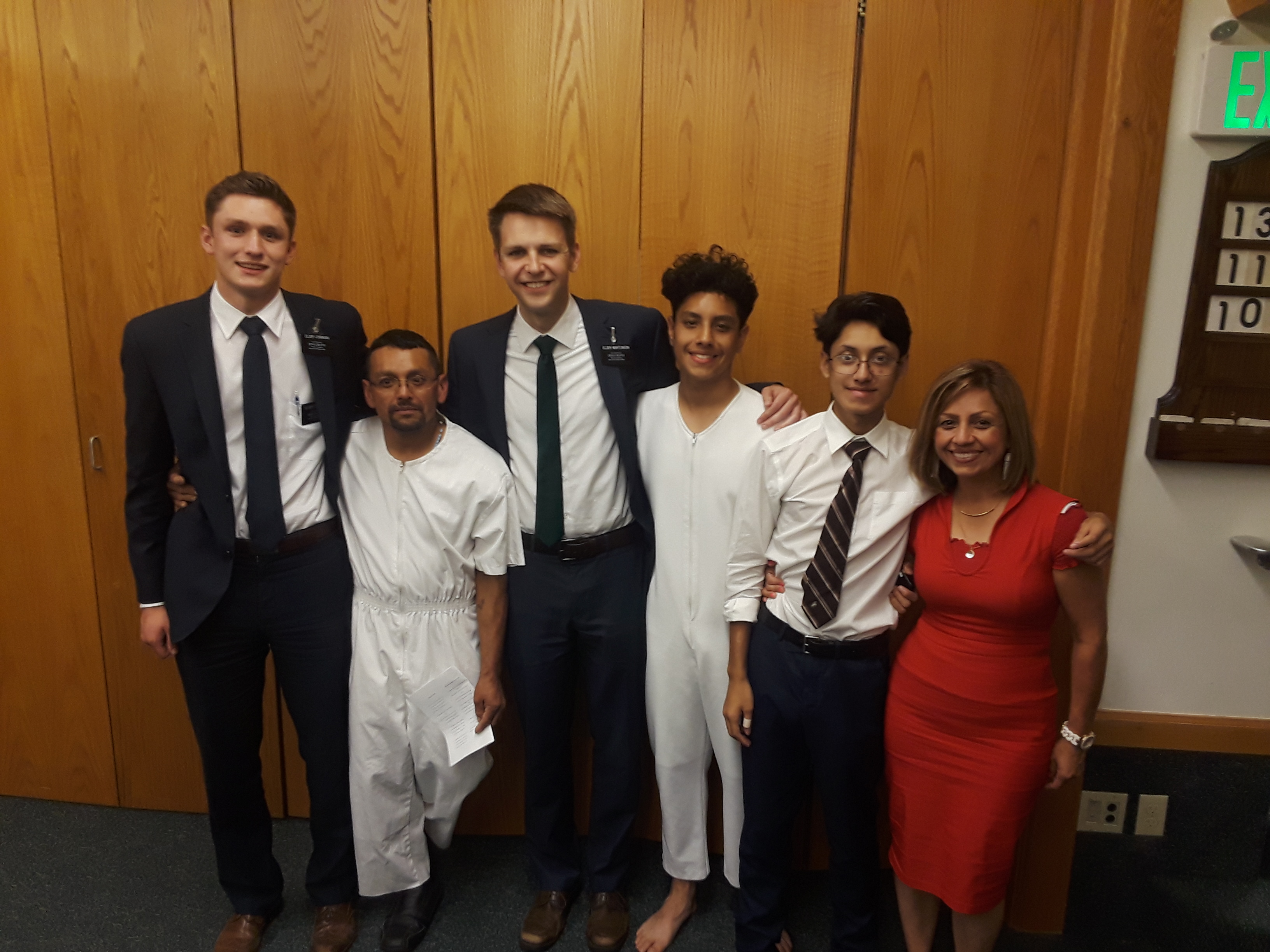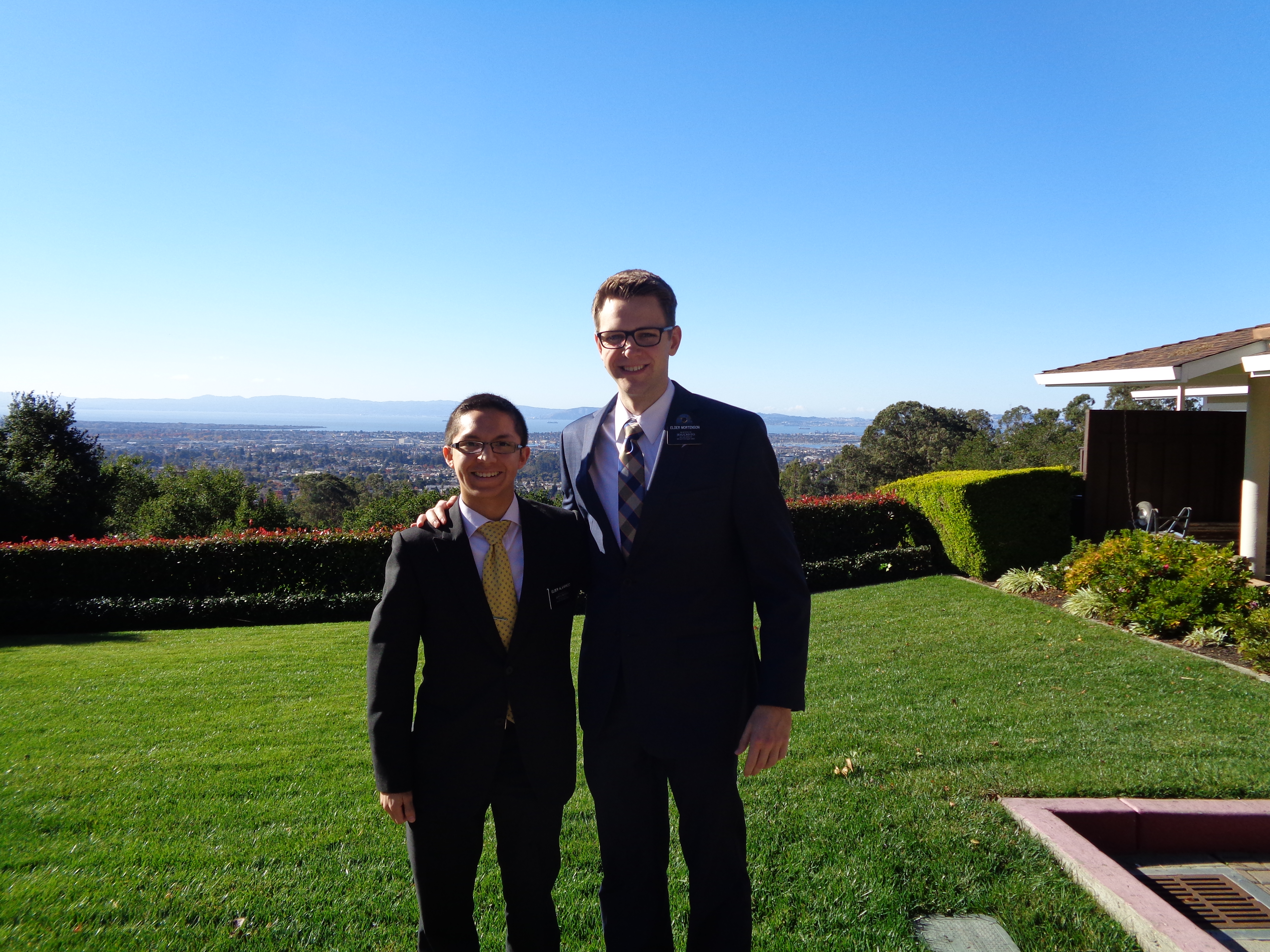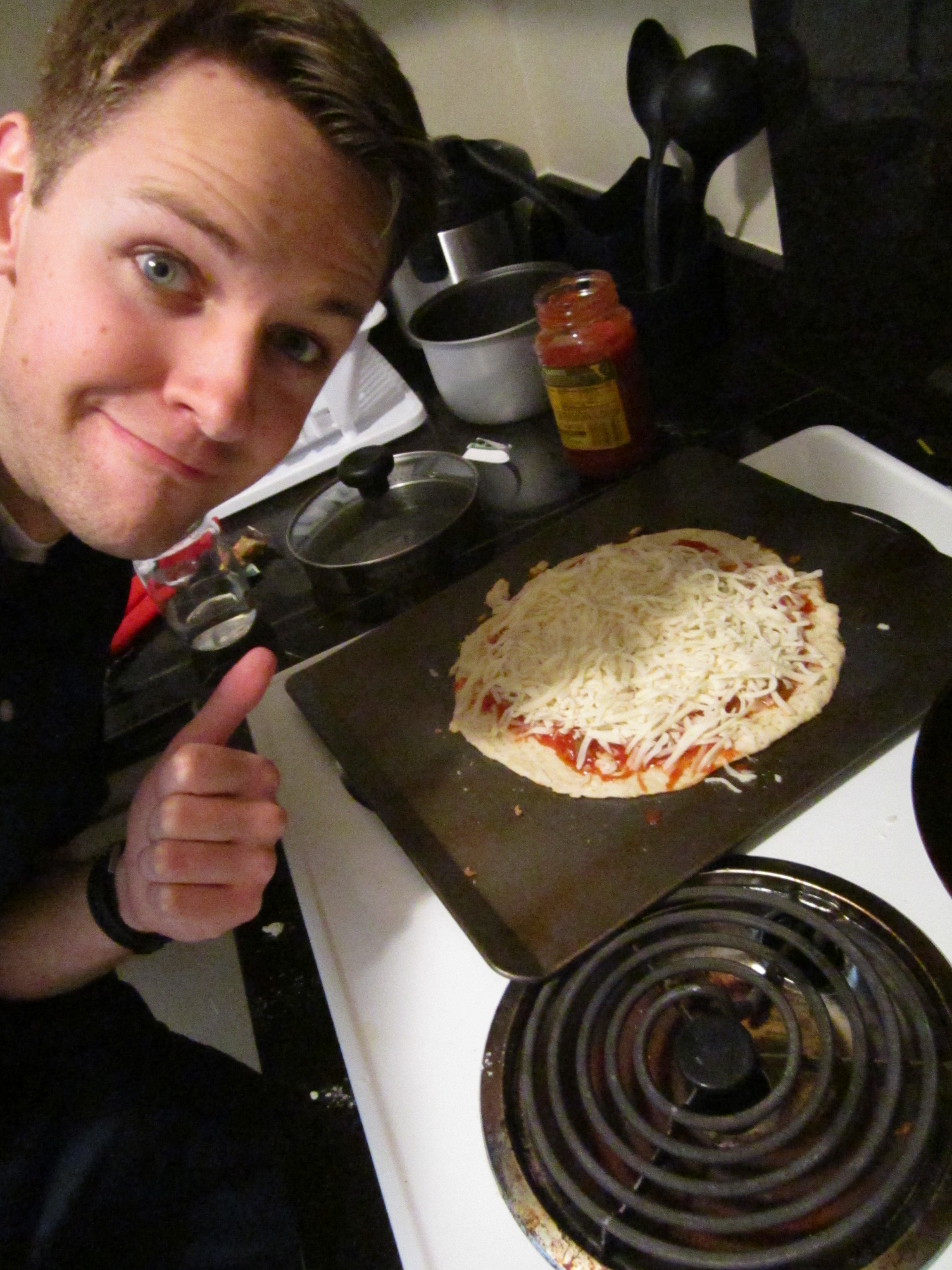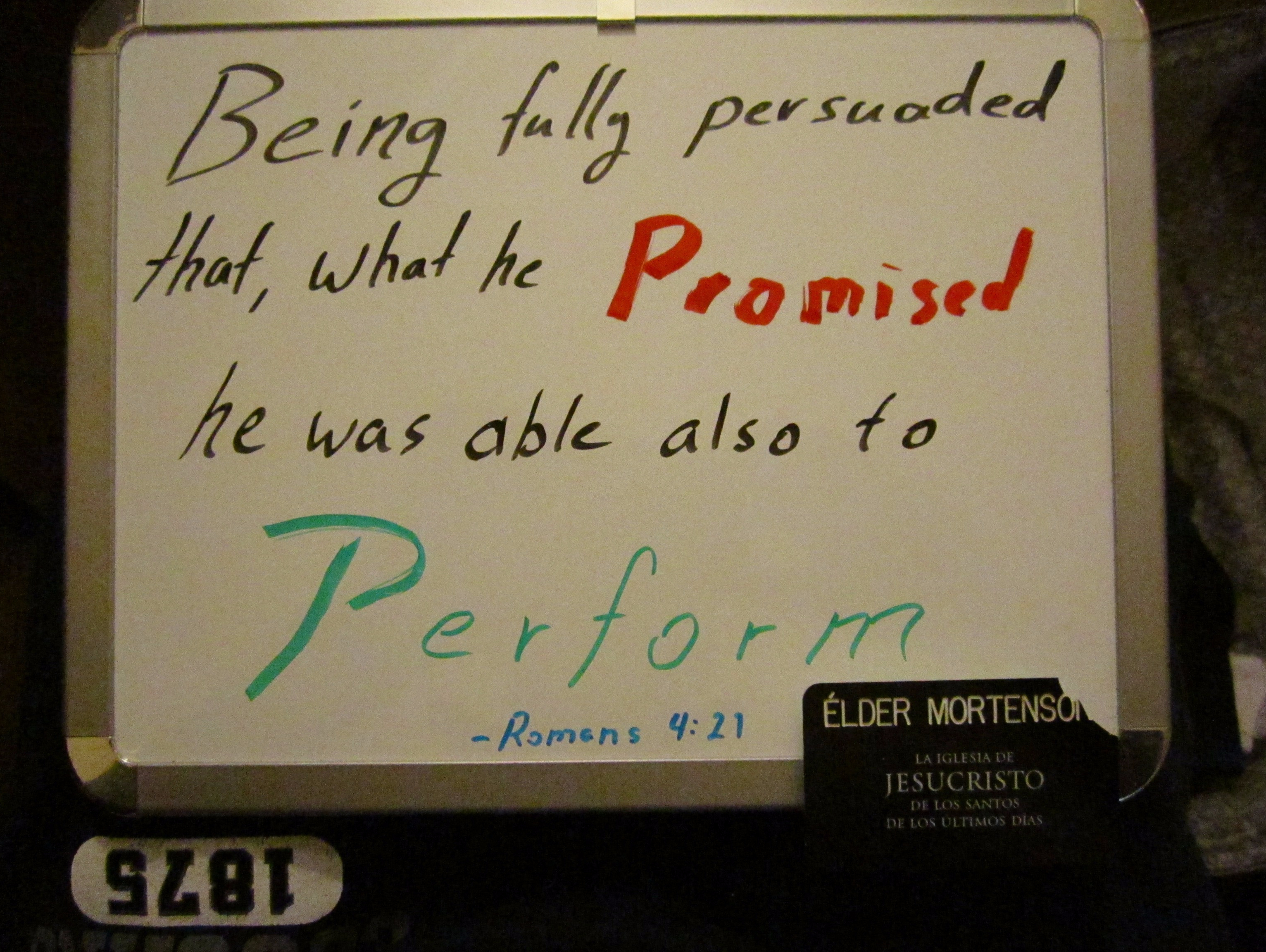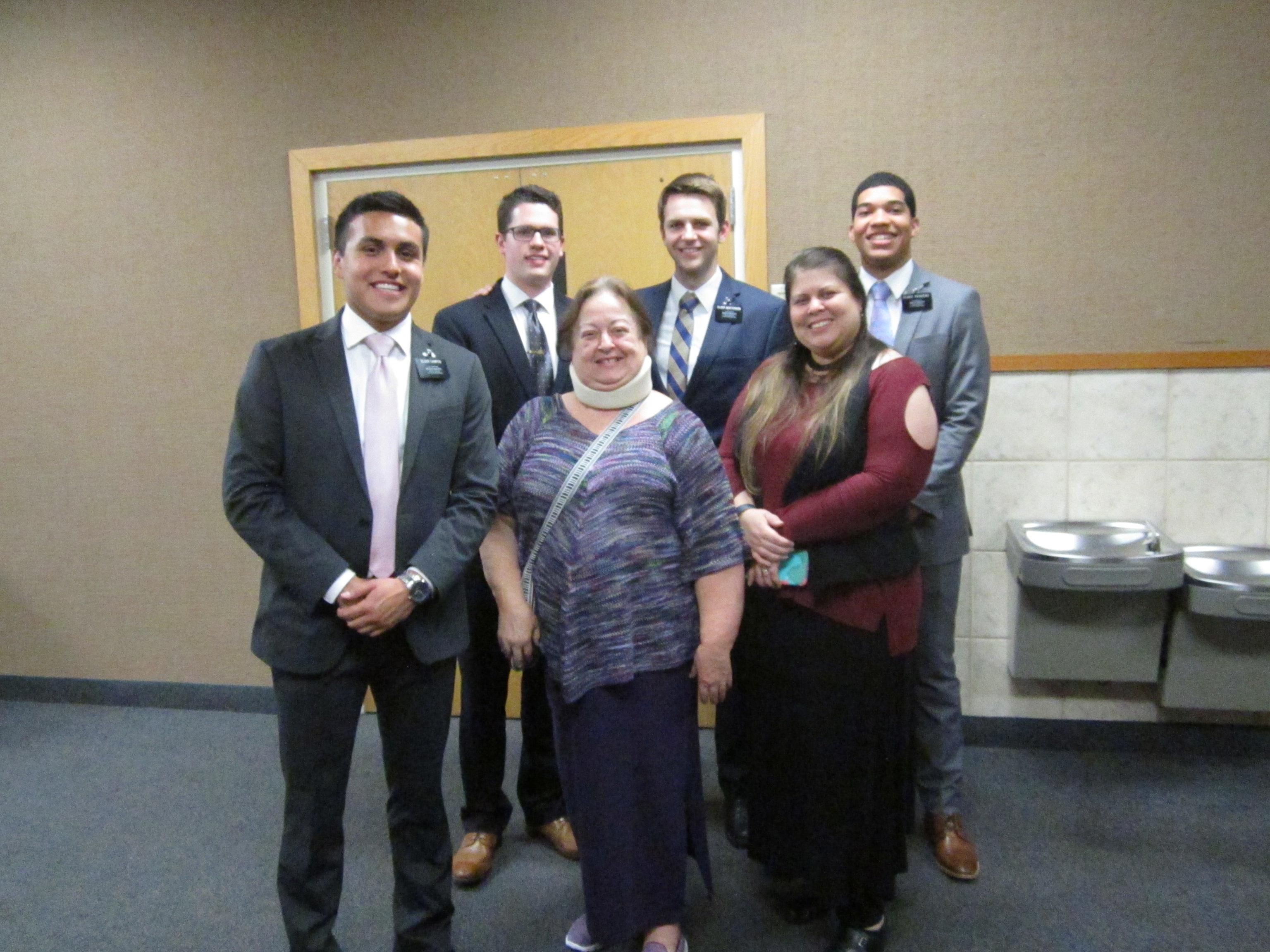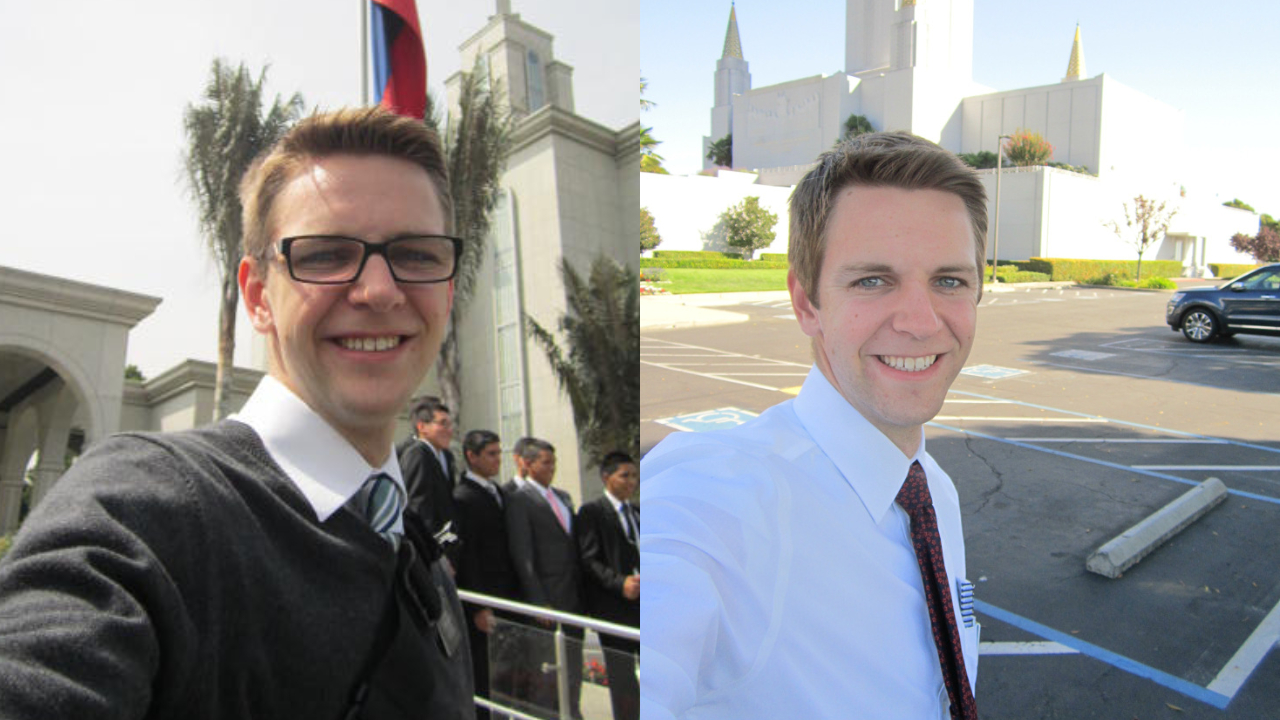
Missions are hard. They are supposed to be. I heard many people say that before I was a missionary, but nothing compares to actually going out there and living it. Mortality is also hard.
I studied Paul’s writing quite a bit while I was on the mission. Aside from his powerful writing style and succinct description of doctrine, I have often felt a connection to Paul.
Paul had a lot of hard missions. We learn that he struggled with a “thorn in the flesh”. I had a break in the ankle. He was shipwrecked repeatedly. I was car-wrecked in the last weekend of my mission. He ended his mission earlier than anticipate when he was executed in Rome. I guess he just helped me feel like I was in good company.
The important thing, however, is not that he suffered through those things, but that he made that suffering worth something. He was faithful until he could say:
I have fought a good fight, I have finished my course, I have kept the faith: ”
2 Timothy 4:7
In the end, Satan could have no power over him.
An obvious question follows: How did he do it? How did he keep the faith through years of persecution with no earthly reward in sight? How did he not cave?
Well, I don’t know, but he gives us a little insight into his method for overcoming and moving past hardship in a letter he sent to people in Phillipi.
Pay close attention:
Brethren, I count not myself to have apprehended;
I’m not saying I’m there yet.
But this one thing I do, forgetting those things which are behind, and reaching forward unto those things which are before.”
Phillipians 3:13
It took me three years to understand that this is the way I could progress, unfettered by the past. This is the way to eventual perfection. This is the Gospel of Jesus Christ. It is the purifying and ennobling power of repentance and forgiveness.
So, what does this principle look like in my life? Rewind back to early 2016. I was a new missionary in Barranquilla. My first companion had me memorize a list of 10 statements found in Preach My Gospel (a guide for missionary service). Those statements, generally called “How to Begin Teaching” include the following:
Each person we teach has personal challenges and concerns. No matter what your needs or concerns might be, the Savior and his teachings – the Gospel – will help you.
PMG Ch.10
I taught that while I was in Colombia. I told people that the Gospel could really help them through problems that were far beyond my power to empathize with, let alone offer solutions to. But I trusted that the Gospel would help. That was an unproven trust.
I didn’t have the opportunity to prove that trust until I after I had been sent home. I hurt during the last months of 2016. I was questioning. All of a sudden, I was the one with “personal challenges and concerns,” but I didn’t want to believe that living the Gospel really would help. A few questions gnawed at my physically (and spiritually) injured insides.
“Why did have to break my ankle?”
“Why did I have to leave Colombia prematurely?”
“Why did my life seem to get so much worse when I tried to serve the Lord in Colombia?”
Some of my hardest memories from my time in Colombia would play on an endless repeat in my mind, growing darker and more malicious every time. I had tried to serve the Lord. Now I was injured, pessimistic, and stagnant. I consisted on an emotional diet of self-pity and fear.
What took me months to realize is that I was not acting on my professed beliefs. I had taught people that they could overcome anything through the Gospel of Jesus Christ. I was being hypocritical. After living at what I considered to be rock-bottom for months, I decided that I better find out if what I had taught was really true. And not just true, but useful. Practical. Life changing. That’s when I started to do what Paul did.
I recognized my imperfection. “I count not myself to have apprehended, but this one thing I d[id].”
I “forg[ot] those things which are behind.” That doesn’t mean that I can’t remember them. I can. But I don’t. I learned to stop actively remembering them.
And, “I reach[ed forward unto those things which are before.”
I got back to good habits of studying God’s word and praying. I got back to my academic studies at BYU. As soon as I could, I started running. I got the help I needed and forgave myself and everyone else. I liberated myself of my past.
That is how I know that repentance is a joyful process, by the way. It liberates us from our past.
We are now in mid January, 2019. A lot of time has past since I made that course correction. I’ve served another mission. I’ve made a lot of mistakes. I’ve repented incessantly. And, in personal hindsight I have no doubt.
No matter what your needs or concerns might be, the Savior and his teachings – the Gospel – will help you.
PMG Ch.10
Most people figure January is the right time to start fresh and get the disappointment of not actually keeping their resolutions over with quickly so they can get on with life as usual. And so I’m not going to invite you to take up a new hobby or make a new goal. I’m going to invite you to leave something behind. It’s not too late in the month to do that.
If you are carrying around an old sin or grievance or doubt, I invite you to do what you can to make it as right as you can, and then forget it. God isn’t concerned with who we were or what regrets we have. He is concerned with who we are trying to become, and we are the only ones who can stop us in our progress. Jesus Christ, the God and Creator of this planet suffered INFINITELY so that you can let things go and move forward. He won’t force us to, but if we choose to let him, He will heal us.
He has healed me. Distrust in everything has been replaced with trust and confidence for the Lord’s plan in my life. Optimism in Christ has replaced secular cynicism. A once-broken ankle has run a half marathon. The darkness of what happened 3 years ago was replaced by a quiet but persistent hope that I felt as a missionary in California.
So, I invite you to take one of your old resolutions to hold a grudge or hide a weakness or preserve a scar, and leave it in the recesses of the past. It will be one less habit to worry about keeping up. One day, all of our scars will be completely erased, but even now in mortality we can let peace replace hurt in our lives. I know that it is possible.
The mission in California was also hard. I had good times, and I had rough times. But with every trial I learned to set aside my fears and repeat Paul’s resilient refrain:
I’m not there yet, but this one thing I do.
You can do it too.
-Daniel Mortenson
